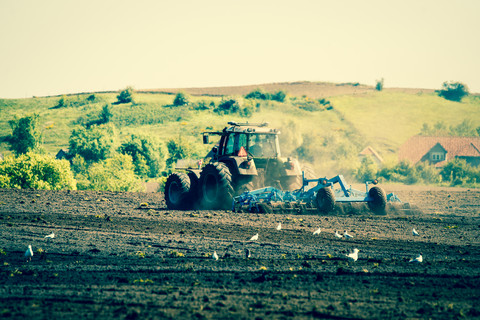Danish engineers in huge EU project to show the farming of the future
Farming is facing a paradigm shift in which smart IT solutions will modernise the industry and make it more efficient. The EU Framework Programme for Research and Innovation is granting hundreds of millions to a large demonstration project to boost development.

In recent years, researchers all over the world have developed smart technologies based on Big Data, the Internet of Things (IoT) and Artificial Intelligence, the aim of which is to streamline and automate farming production.
However, even though the farming industry has been generally willing to adopt this development, its use is currently very fragmented and the technologies are mainly used by early adopters.
This has an impact on productivity and sustainability, and a major new EU project will now change this situation.
“This is a paradigm shift. It’s a new way of going about farming, which will be transformed into a web of connected objects that can be identified, measured, controlled and remotely operated. There are so many advanced technologies that aren’t really being used. This project will show the world how to go about using them,” says Senior Scientist Claus Grøn Sørensen, Department of Engineering, Aarhus University.
The project is called the Internet of Food & Farm 2020, and it aims to demonstrate via 19 different case studies how IoT can drastically improve productivity and sustainability in European farming as we know it today. The project will also demonstrate business models for the relevant technologies.
“A typical farmer will ask what he’s going to get out of it. And for many years, this has been hard for researchers to actually demonstrate. The problem has often been that technologically advanced systems have been developed, but that they’ve simply been too complicated. If there’s too much user interaction – i.e. if the farmers themselves have to spend a lot of time keeping track of the systems – it just doesn’t work. They don’t have time for that. But if we can demonstrate that the systems are easy to use, and that there’s an advantage – a sensible business model – the farmers will take it to heart,” says Dr Sørensen.
In other words, there has been a lack of completeness. What has been lacking is the impression of how machines that work together smoothly can create coherence, quality and profit in production. This is where the Internet of Food & Farm 2020 project will boost development, so that the agri-food sector can move towards a completely automated and autonomous future when IoT and other IT technologies catch on in the industry.
Read more about Aarhus University’s new AU Agricultural Technology research programme and the AU Centre for Smart Farming here.
Read the complete media release here (download PDF file).
More information
The title of the project is the Internet of Food & Farm 2020. The total budget is EUR 35 million, EUR 30 million of which is financed by Horizon 2020 – the EU Framework Programme for Research and Innovation. The project began on 1 January 2017 and will run until 2020.
For more information, please contact
Senior Scientist Claus Aage Grøn Sørensen
Department of Engineering
Aarhus University
